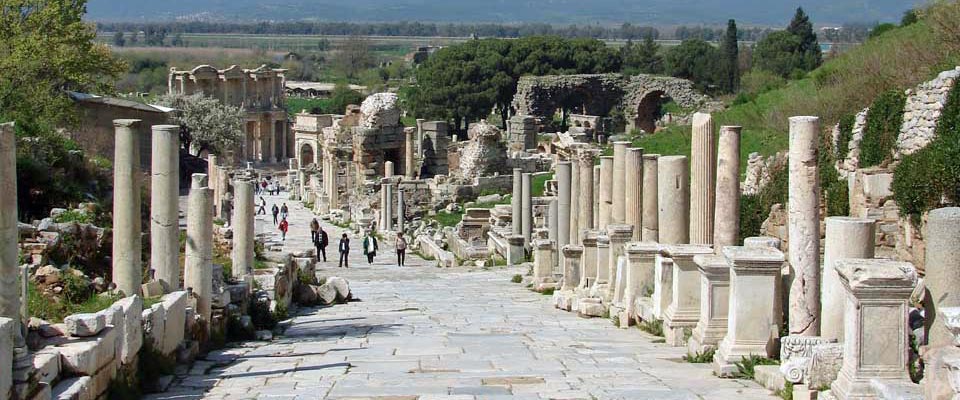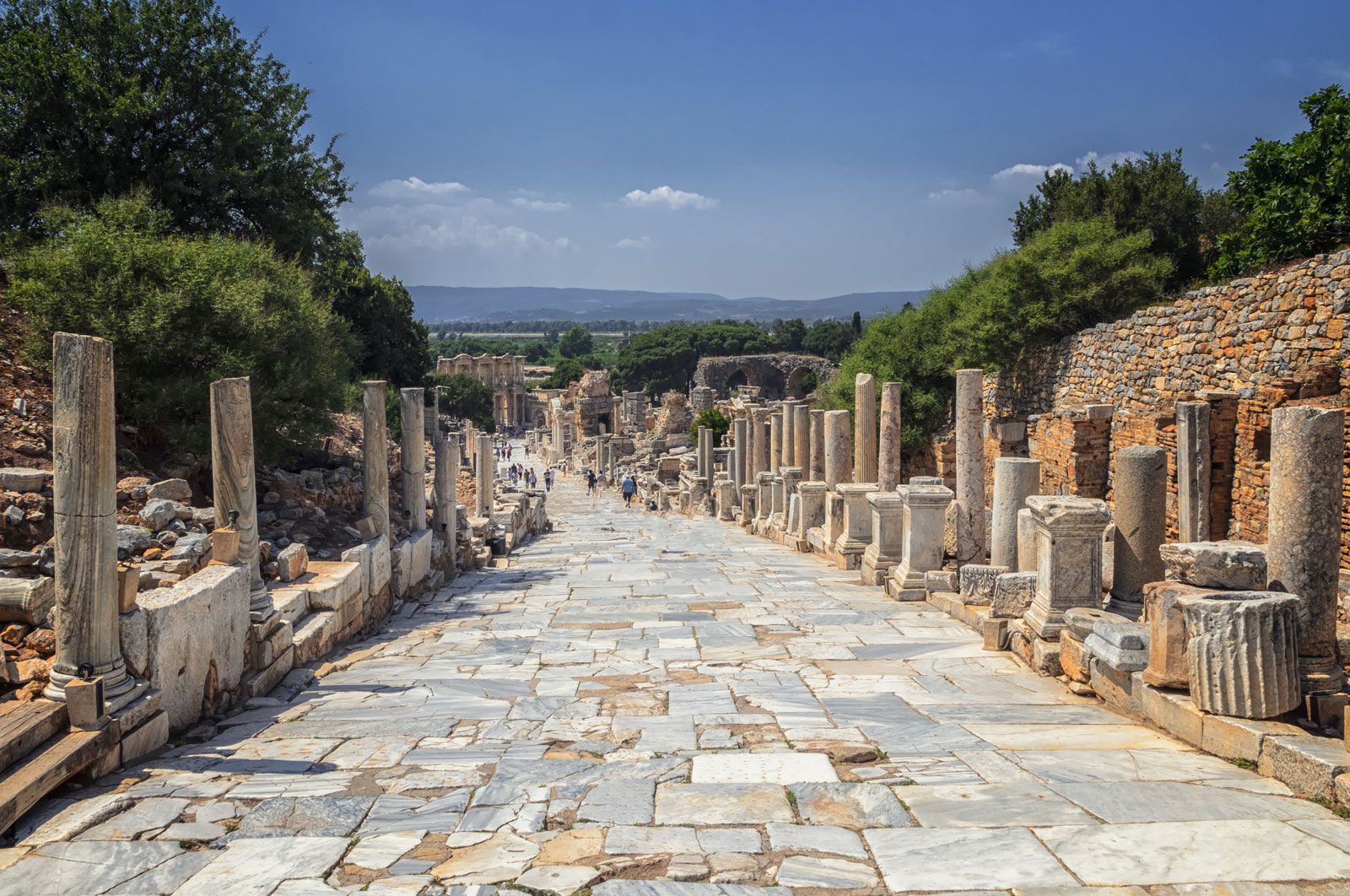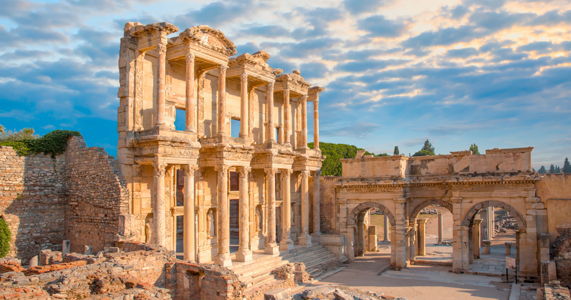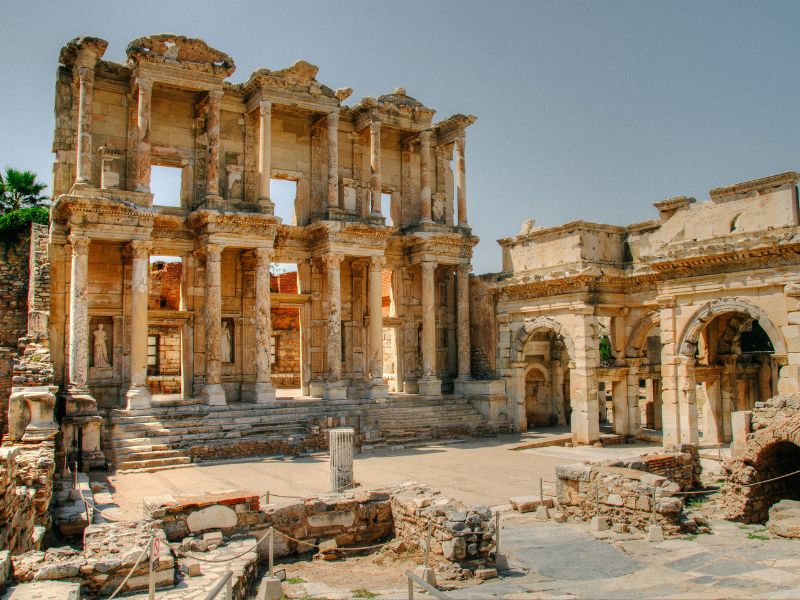Ephesus, situated in modern-day Turkey, was a prominent ancient Greek and Roman city renowned for its cultural, political, and economic significance during classical antiquity. As one of the largest cities of the ancient world, Ephesus served as a thriving hub of trade and a center for worship, notably housing the Temple of Artemis, one of the Seven Wonders of the Ancient World.

Historical Background
Established around the 10th century BCE, Ephesus flourished under various civilizations, including the Hellenistic and Roman empires. The city became a focal point for commerce and culture, benefiting from its strategic location along trade routes that connected the Mediterranean with the interior of Asia Minor. Ephesus was not only a bustling marketplace but also a melting pot of diverse cultures and ideas, contributing to its rich history.

Architectural Marvels
Ephesus was known for its grand architecture, with structures that exemplified the artistry and engineering prowess of the time. The Library of Celsus, an iconic building, served as a monumental tomb for a Roman senator and housed thousands of scrolls. This library was not just a repository of knowledge but also a symbol of Ephesus’s intellectual aspirations.

Another remarkable feature of the city is its impressive theater, capable of seating 25,000 spectators. This theater was a venue for performances, political gatherings, and public events, reflecting the city’s vibrant cultural life. The acoustics of the theater remain a testament to the architectural innovations of the era, allowing even the faintest sounds to be heard by the entire audience.
Religious Significance
Ephesus also played a significant role in early Christianity. It was here that the Apostle Paul preached and wrote letters to the Ephesians, making the city a crucial center for the spread of early Christian teachings. The Basilica of St. John, believed to be built over the tomb of the apostle, highlights the city’s continued religious importance long after its decline.

Decline and Legacy
The decline of Ephesus began in the 3rd century CE, driven by shifting trade routes, natural disasters, and invasions. Over time, the city was abandoned, leaving behind a rich archaeological site that speaks to its former glory.

Today, Ephesus stands as a UNESCO World Heritage site, attracting countless visitors who marvel at its well-preserved ruins. The site offers invaluable insights into the daily life, architecture, and spiritual practices of ancient civilizations. Through its stunning remnants, Ephesus continues to captivate scholars and tourists alike, serving as a powerful reminder of humanity’s enduring quest for knowledge, culture, and connection.

